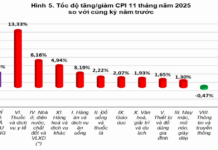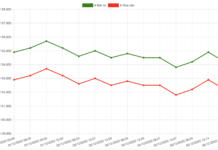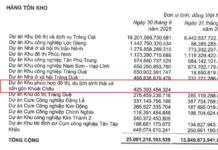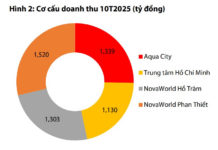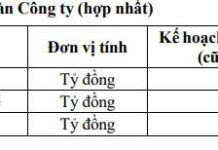The salary policy for civil servants is an issue of concern for local authorities, who have reflected and proposed suggestions to the Ministry of Home Affairs.
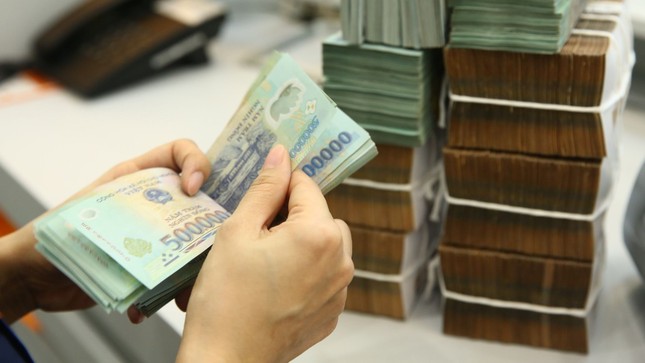
Salary increases for civil servants are based on their performance and achievements (Illustrative image)
Regarding salary and bonus schemes for civil servants, Ha Tinh and Nghe An provinces have requested the Ministry of Home Affairs to provide guidance on the authority and form of issuing regulations on bonus schemes and whether the bonus fund includes labor contracts as stipulated in Decree No. 111/2022/ND-CP, which is currently applying the salary scale according to Decree No. 204/2004/ND-CP.
In response, the Ministry of Home Affairs clarified that according to Clause 2, Article 4 of Decree No. 73, the heads of agencies and units managing civil servants are responsible for developing specific regulations to implement bonus schemes for individuals on the salary list of their respective agencies or units.
Additionally, the heads of agencies and units are responsible for sending these regulations to their immediate higher-level management authorities for inspection and implementation, ensuring transparency within the agency or unit.
Regarding bonuses, Clause 4, Article 4 of the aforementioned Decree states that the annual bonus fund is determined as 10% of the total salary fund (excluding allowances) based on the positions, ranks, levels, and military ranks of individuals on the salary list of the agency or unit.
When can civil servants receive early salary increases?
Binh Phuoc Province has requested the Ministry of Home Affairs for guidance on preferential allowances, hazard allowances, and other allowances for public employees who are seconded to state administrative agencies, as well as on achievements required for early salary increases.
In response, the Ministry of Home Affairs referred to Decree No. 115 of the Government, which was amended and supplemented by Decree No. 85, for the implementation of preferential allowances for public employees seconded to state administrative agencies. According to this decree, the hazardous allowance for civil servants, public employees, and laborers is stipulated in Circular No. 07 of the Minister of Home Affairs. This allowance is calculated based on the actual working time in hazardous and dangerous conditions and is paid along with the monthly salary.
Regarding preferential allowances for public employees, the Ministry of Home Affairs stated that this allowance is implemented according to legal documents stipulating preferential allowances for specific sectors, such as healthcare, education, forest rangers, plant protection, veterinary, and dike management.
Achievements and criteria for early salary increases for civil servants are guided by Circular No. 08 of the Minister of Home Affairs. This circular provides detailed instructions on implementing regular salary increases and early salary increases for civil servants, public employees, and laborers. Specifically, Circular 08 sets out the standards and levels of outstanding achievements in task performance and the corresponding time frames for early salary increases.
These regulations are decided by the head of the agency or unit in discussion with the Party Committee and the Executive Committee of the Trade Union at the same level, and are specified in the agency’s or unit’s Salary Increase Regulations. Therefore, early salary increases for civil servants, public employees, and laborers depend not only on the provisions of Circular 08 but also on the Salary Increase Regulations of the agency or unit, specifically the levels of achievements stipulated in these regulations.
The Evolution of Remuneration: Unveiling the Intricacies of Salary Advancement for Government Officials and Civil Servants
The criteria for salary raises for officers, civil servants, public employees, and workers are stipulated in the Ministry of Home Affairs’ circular and are also subject to the agency or unit’s own Salary Scale Advancement Regulations.
What Benefits Do Civil Servants Receive When They Take Retirement Leave Without Reappointment?
During the waiting period before retirement, officers and civil servants are entitled to receive their full positional salary or salary according to their rank and grade, along with any applicable allowances.
The Department of Labor Reports to the Prime Minister a 9-Day Consecutive Holiday for Tet
The Ministry of Labour, Invalids and Social Affairs has announced that, due to the unique calendar configuration in 2025, where the days before and after the Lunar New Year fall on a Saturday and Sunday – which are already part of the regular weekend break for civil servants – they will be entitled to a five-day Lunar New Year holiday, along with the standard four-day weekend break as per regulations.








